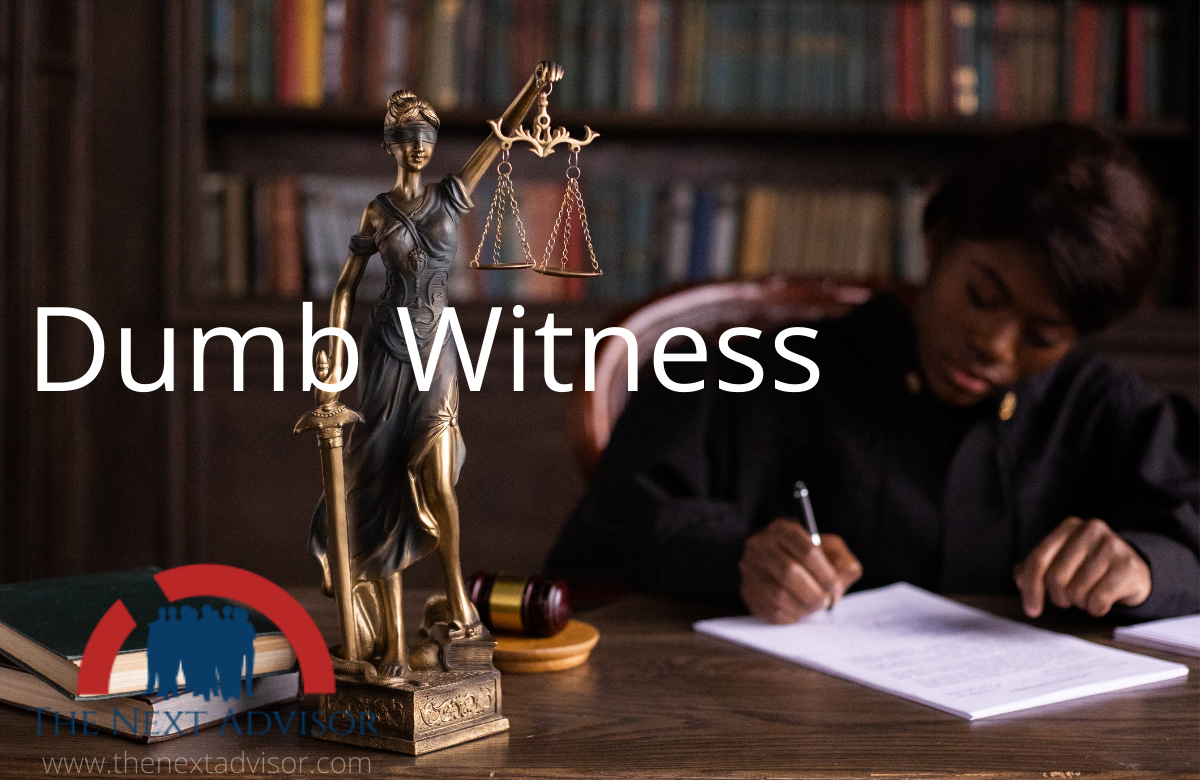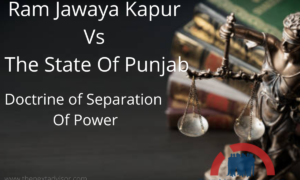Definition of Dumb Witness (Evidence of Dumb Witness):- Section 119 in The Indian Evidence Act, 1872
119. Dumb witnesses.—A witness who is unable to speak may give his evidence in any other manner in which he can make it intelligible, as by writing or by signs; but such writing must be written and the signs made in open Court. The evidence so given shall be deemed to be oral evidence.
Evidence of dumb witness
—Section 5 of the Oaths Act, 1969 enables a witness or interpreter to make an affirmation instead of an oath. On a reading of Sections, 4 and 5 of the said Oaths Act, the interpreter as well as Be witness both have to be administered oath before the Court proceeds to cond evidence of a dumb witness. The Court while recording the evidence of a dumb witness, must record both signs as well as the interpretations of the interpreter, and then only it becomes admissible under the Indian Evidence Act.
Therefore, it has to be seen whether the Sessions Judge recorded the evidence of dumb witness PW 13 as stated above. The Court should also see what is the evidence placed on record so as to sustain a conviction.
The High Court of Gujarat while considering the evidence of a dumb witness in the case of Kumbhar Mus Alib v. the State of Gujarat, thus observed-
“The appellant was convicted under Section 326, Indian Penal Code, by the learned Sessions Judge, Kutch, for assaulting one Ibrahim. After the assault, he became unconscious and regained consciousness, but he lost his power of speech. His evidence was, therefore, given by signs under Section 119 of the Evidence Act. If evidence is recorded under that section, there must be a record of signs and not the interpretation of signs. learned Sessions Judge has recorded the signs as well as the interpretations. But the signs made by the witness in answer to several other questions are not recorded but only the interpretations. This is not correct compliance with Section 119 of the Indian Evidence Act. also does not enable signs is correct or not.
” As already pointed out when a deaf and dumb witness has to be examined, firstly the Court has to assess the competency of the interpreter atter satisfying itself the Court has to administer oath and such an interpreter become a witness of the Court. Then the oath has to be administered to such witness.
In the instant case, it is unfortunate on the part of the learned Sessions Judge that he has not even considered the provisions of Sections 4 and 5 of the Oaths Act, 1969 to know the procedure to record the evidence of a dean and dumb witness.
The questions put to deaf and dumb witnesses have to be recorded by signs and the answers so given by signs have to be interpreted and the answer has to be recorded. But, that is not so in the case on hand. It is such evidence given by signs is acceptable and is to be taken as oral evidence. In the present case, as the procedure laid down under Section 119 of the Indian Evidence Act is not followed, such evidence recorded by the Court, without recording the sign is no evidence. )
In the case of Mesela Ramakrishnan v. State of Andhra Pradesh, ” while considering the evidence given by signs at para 15 thus observed:
15. The Privy Council decision is however the main judgment on which the learned Judges of the High Court have relied inasmuch as the two other decisions have relied on what was held by the Privy Council. In that case as well ( which came from Ceylon ) the appellant had been convicted of murder. The victim’s throat had been cut and she was not in a position to speak but on being questioned regarding the person who committed it, she answered by the signs and nods.
The question which was examined by the Privy Council was whether the statement was relevant and admissible. pointed out on page 26 that Section 32 of the Ceylon Evidence Ordinance ( which is in part material with Section 32 of our Evidence Act ) has used the word ” verbal ” and not ” oral ” . 19 of the Ordinance in this connection. In Section 3, which is the interpretation clause, while defining ” Evidence ” it has been stated that it means and includes, inter alia . ” oral evidence “.
Section 119 deals with dumb witnesses and states that he may give his evidence in any manner in which he can make it intelligible, as by writing or by signs. As to this evidence it has been stated the same shall be deemed to be oral evidence. These show that evidence given by signs as well as acceptable and is taken to be oral evidence. “
To know in detail about The Oaths Act 1969 please refer-The Oaths Act 1969

























